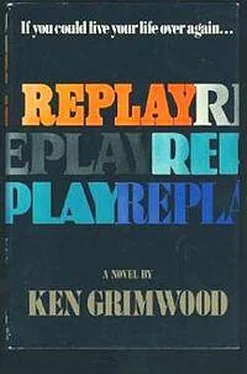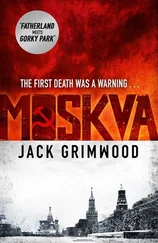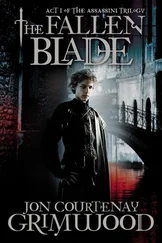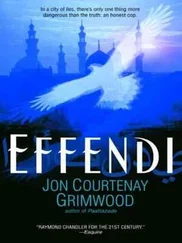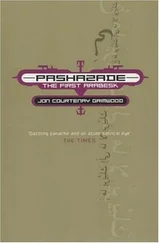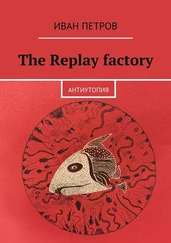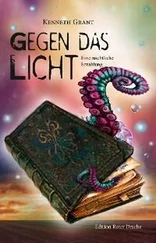There was a Barbara Cartland novel lying open on the table, and next to it a copy of Better Homes and Gardens. Various clippings and notes to herself were stuck to the refrigerator door with little magnets shaped and painted like tiny ears of corn or stalks of celery. A drawing she’d done of the children—well executed, but without the finer skills of lighting and composition she’d acquired through years of practice in other lives—was taped to one of the cabinets. A large kitchen calendar hung above the table. It was open to March 1984, and the dates were neatly crossed off almost to the end of the month. Pamela was thirty-four. Her daughter, Kimberly, would have just turned eight; Christopher would be eleven.
She set the coffee filter aside, started to leave the kitchen, but then stopped and smiled as she recalled something. She opened one of the lower drawers beneath the counter, rummaged behind the boxes of flour and rice … And sure enough, there it was, right were she’d always kept it hidden: a Zip-Loc plastic bag containing most of an ounce of grass and a packet of E-Z Wider rolling papers. Her lone vice in those days, her one real escape from the tedium of housework and "parenting," as it had come to be called.
Pamela put the marijuana back where she’d found it, walked into the living room. The family photographs were hung there, along with two of her paintings from college. The promise that they showed had never been developed in this lifetime. Why had she ever let her talent go to waste for so long?
She could hear muffled music from upstairs: Cyndi Lauper’s cartoonishly bouncy voice singing "Girls Just Want to Have Fun." Kimberly must be home from school; Christopher would probably be in his own room, playing with the Apple II computer they’d bought him that Christmas.
She sat on the chair in the foyer, took a pencil and a pad of paper from the telephone table, and dialed information for New York City. There was no listing for a Jeff or Jeffrey Winston in Manhattan or Queens. No Linda or L. Winston, either. It had been a long shot, anyway; there was no reason to think he might be back in New York. Pamela tried information again, this time in Orlando. His parents were listed. She called, and Jeff’s mother answered the phone.
"Hello, my name is Pamela Phillips, and—"
"Oh, my goodness! Jeff told us you’d be trying to get in touch with him, but Lord, that was ages ago. Three years ago, I think, or maybe even four." The woman’s voice faded as she apparently turned away from the mouthpiece, called in an aside: "Honey! It’s that Phillips girl that Jeff said might call, remember? Could you find me that envelope he sent?" She came back to the phone.
"Pamela? Hold on just a minute, dear; there’s a message for you here from Jeff. My husband’s getting it."
"Thank you. Could you tell me where Jeff is, where he’s living now?"
"He’s out in California, in a little town—well, right outside it, he says—called Montgomery Creek, up close to Oregon."
"Yes," Pamela said. "I know where it is."
"He said you would. You know, he doesn’t even have a phone out there, can you imagine? It worries me sick, thinking what could happen to him in an emergency, but he says he’s got a shortwave radio for that kind of thing. I just don’t know what came over him, a grown man quitting his job and leaving his wife and—Oh, I’m so sorry. I hope I wasn’t speaking out of turn, to—"
"It’s quite all right, Mrs. Winston. Honestly."
"Well, it was just the strangest thing, anyhow. You might expect that kind of foolishness from a college boy, but for a man his age—he’ll be forty before too very long, you know—Oh, thank you, honey. Pamela? I’ve got that envelope he sent us for when you called. He said we ought to just open it up and read it to you. Do you want to get a pencil or something?"
"I’m all set."
"O.K., then, let me see … Hmmph. You’d think after all this time and so much mystery, there’d be more to it than this."
"What does it say?"
"It’s just one line. It says, If you’re coming, be sure to bring the children. I love you. Jeff. That’s all there is to it. Did you get that? Do you want me to read it again?"
"No," Pamela said, a grin spreading wide on her suddenly flushed face. "Thank you so much, but I understood it perfectly."
She set the phone down, looked toward the staircase. Christopher and Kimberly were old enough now. They wouldn’t like the idea of leaving home at first, but she knew they’d soon grow to love Montgomery Creek and Jeff.
Besides, Pamela thought, biting her lip, it wouldn’t be for long.
They’d be back here in New Rochelle, back with their father, before they started high school.
Three and a half years. Her final replay; the last months and days of her phenomenally protracted life.
She planned to enjoy them all, to the fullest.
It was one of those rains that will neither cease nor get on with it and be done, but simply keeps on falling with a dull and intermittent insistence.
They’d been stuck inside the cabin like this for two days now; it was getting musty, the air dank with the smell of mildew from a leather vest that Christopher had left hanging on the porch railing overnight and had brought inside the next morning to dry by the stove.
"Kimberly!" Pamela said with exasperated dismay. "Will you please stop drumming on that plate!"
"She can’t hear you," Christopher said, and leaned across the table to lift the miniature foam headphone away from his sister’s left ear. "Mom says to cut it out," he yelled over the tinny sounds of Madonna’s "Like a Virgin."
"As a matter of fact, just turn that off," Pamela said. "It’s rude to listen to music by yourself while we’re all having lunch."
The girl put on her most aggrieved grimace and pout but took the headphones off and put the Walkman away, as she’d been told. "I want another glass of milk," she said in a petulant tone.
"We’re out of milk," Jeff reminded her. "I’m going into town tomorrow morning; I’ll bring some back then. You can ride in with me, if you’d like; it may have stopped raining, and we could walk down by the falls."
"I’ve already seen the falls," Kimberly whined. "I want to watch MTV."
Jeff smiled tolerantly. "Out of luck there, kiddo," he said. "We could listen to the shortwave, though; see what they’re saying in China, or Africa."
"I don’t care about China or Africa! I’m bored!"
"Why don’t we just talk, then," Pamela suggested. "That’s what people used to do, you know."
"Yeah, sure," Christopher muttered. "What’d they ever find to talk about so much?"
"Sometimes they told each other stories," Jeff put in.
"That’s an idea," Pamela said, brightening. "Would you like me to tell you a story?"
"Oh, jeez, Mom, come on!" Christopher protested. "What do you think we are, in kindergarten or something?"
"I don’t know," Kimberly said, turning thoughtful. "Maybe it would be fun to hear a story. We haven’t done that in a long time."
"You willing to at least give it a try?" Pamela asked her son. He shrugged, didn’t answer.
"Well," she began, "thousands and thousands of years ago, there was a dolphin named Cetacea. One day a strange new awareness suddenly came into her head, as if it had come from the sky above her ocean and beyond. Now, this was in the days when dolphins and people sometimes spoke to one another, but…"
And with the gentle summer rain in the background, she told them the story of Starsea, of the common bond of loving hope that linked the intelligent creatures of the earth, the sea, the stars … and of the catastrophic loss that ultimately brought humanity to the sorrowfully exalted moment of first full contact with its ocean kin.
Читать дальше
